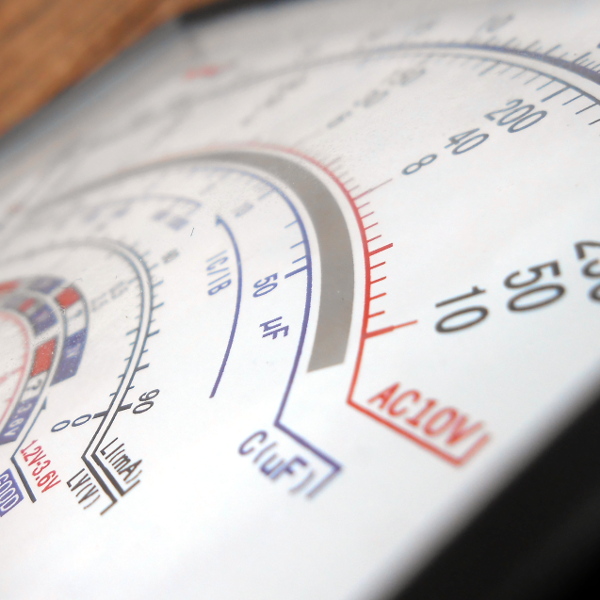Do you want to be a better person? Maybe you want to curse less, drink more water, or post fewer inflammatory comments on the internet. You could go the old school route by wearing a rubber band around your wrist and snapping it every time you slip, or literally pat yourself on the back when you do the right thing. While these types of reinforcement methods may deter bad behavior and encourage good, they are quite lean on data. And who wants that?
After an unpleasant conference call, [Darian] cursed a blue streak that left his coworkers shocked and speechless. This inciting incident began the hero’s journey that will end with a kinder, gentler [Darian], as long as he has his trusty Be Better Bracelet. He tried involving Alexa when at home, and various apps elsewhere to track these venomous utterances, but he yearned for a single solution that’s always available.
The sole purpose of this bracelet is low-cost, unobtrusive habit tracking. Though tied to a phone, it won’t tell time, predict the weather, or alert the user to incoming what-have-yous. It will simply record button presses, which are assigned meaning in the app settings. It’s up to the user to set goals, analyze the data, and reward or punish themselves accordingly.
[Darian] is still working out the design kinks to make this as small and cheap as possible. If you have suggestions, let him know.




















I was expecting an electric shock function to be built in. :P
One of the hardest habits to break in public speaking is “disfluencies”, which are filler words or noises when one is searching for a thought: “ah”, “um”, “ya know”, double clutch (restarting a sentence from the beginning), and so on.
The reason it’s so hard is that we don’t notice when we do it.
One way to break these is to have your girlfriend (wife, husband, whatever) simply say “ding” every time they hear one. This will alert your conscious mind every time you do it, and eventually you’ll stop. Very effective.
I suspect the best memory aid to stop swearing would be a bracelet that *detects* swearing, and simply alerts the user that it is happening. A cell phone buzzer would suffice.
It’s not about detecting swearing, it’s about detecting anger. You’d probably have to do it with sensors attached to your body, to avoid privacy concerns. You’d spend a certain amount of time training the AI, then after a while it could give you little warning buzzes, or a distracting/calming telephone call. The app could partner with businesses that give you coupons as a reward for successfully avoiding an outburst x number of times…
Steve Jobs would have broke the poor machine.
Early Simpson’s episode with everyone shocking each other.
A collegue uses https://pavlok.com/ and this device give some serious electric shocks!
That sounds Orwellian to me. Tracking all you do to then suggest “better” behavior.
Much better to cure the causes, than trying to suppress the symptoms.
If you have to smoke or eat unhealthy, it’s better to fix the reasons that cause you to compensate stress this way.
If you feel the need to swear after a very frustrating conference call, maybe people should just let it happen, and move on. As long as you don’t terrorize people and abuse your power (which I doubt you have if it was so frustrating), there is nothing wrong with letting off steam. And then take it seriously, and address why the work environment is so bad.
A fake friendly work environment, where the real bad stuff happens behind backs is much more toxic, than being a real person.
When you want to break bad habits, look at the causes, don’t add more stress by working against the symptoms.
If it’s really a simple mindless habit, just pay attention to it, consciously for a while, and observe why you do it. It’s easy to fix then. No need for technology here (nor does it help).
Research shows people who swear more tend to be more honest. What’s perceived as a virtue isn’t necessarily better.
Be Better Bracelet Breaks Bad Behaviors, Bolsters Beneficial Bents
The app should be able to record more than just timestamps, other things like location, phone lock status and time since last change.
Feature creep…
“Do you want to be a better person?” No, not really.
Where I work casual profanity is the norm and even the occasional profane rant doesn’t raise an eyebrow…the owner is ex military and most of the people in the company has a “storied” past. The joke around the shop is “we’re all hear for a reason”.
To be honest, it’s the best working environment I’ve had…nobody gets upset after things get heated and in the end everybody is on the same page, buddy-buddy again.
I coid totally fucking use this shit, yo.
Why would anybody actively condition him/herself to refrain from the most effective, vibrant and dynamic part of language? Do we really need 18th century puritan norms in modern day society? I “fucking” think not.